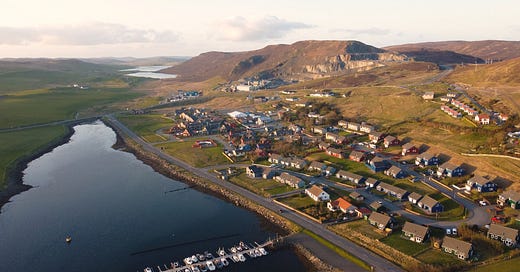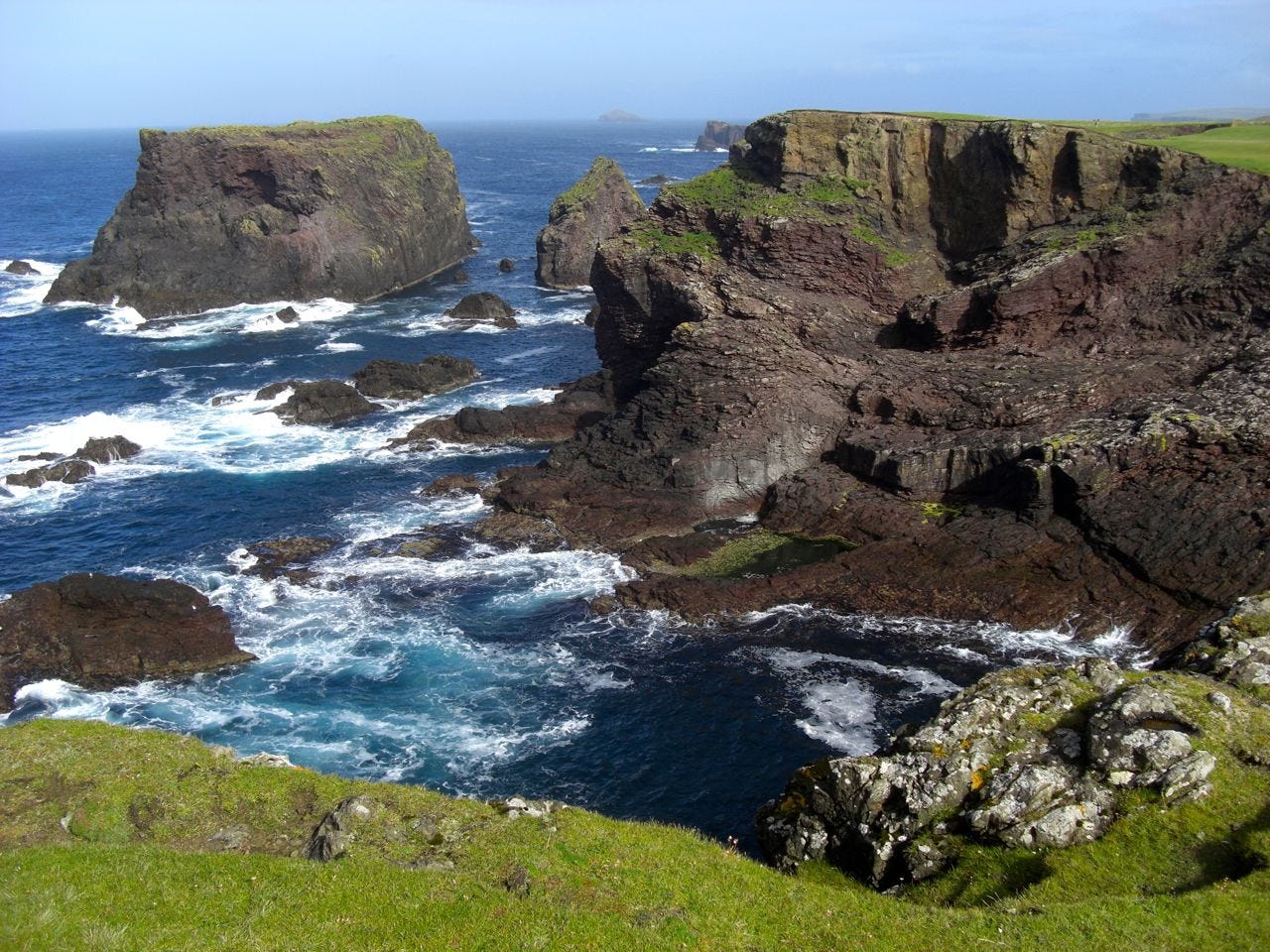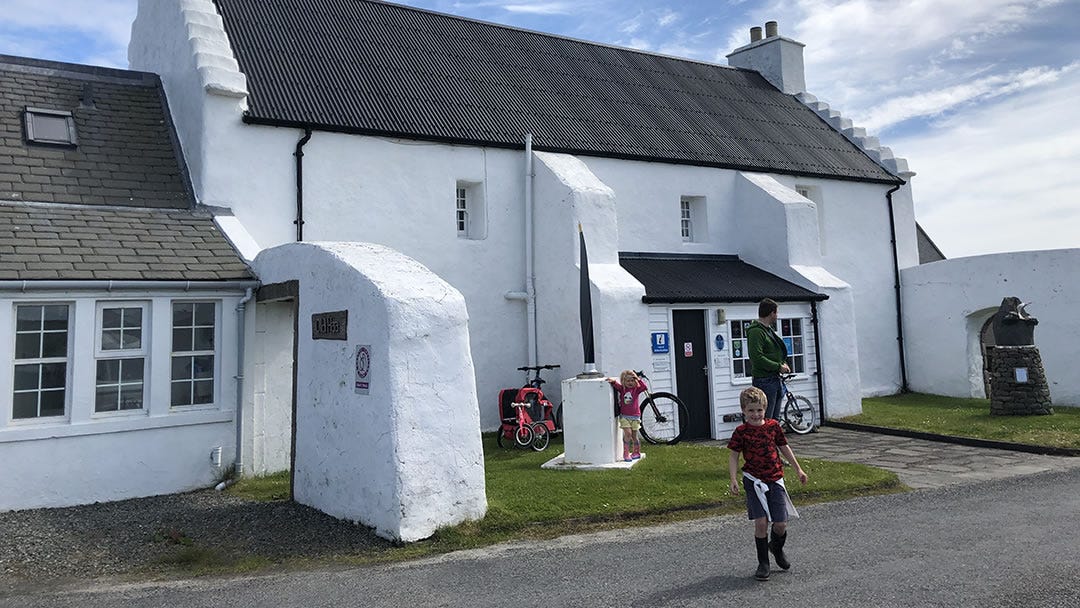Statkraft is proposing the Lluest Y Gwynt wind farm on the slopes of Pumlumon in Ceredigion.
I have been watching the progress of wind farm projects in Shetland, and this week's blog features an intriguing insight from the island of Yell. My observation is taken from a recent letter in The Shetland Times. It discusses the growing interest of the Yell Community Council (YCC) in investing in Statkraft's wind farm developments, highlighting community opposition to further industrialisation but also a growing sense of resignation regarding these projects.
It highlights the fact that planning consent does not ensure construction, citing Statkraft's postponed project timelines and the possibility of shifts in focus due to economic conditions or local opposition.
It argues that community resistance is vital and emphasises that developers need public backing. It also warns about the financial risks tied to YCC's investment, which might not grant the community any real say in operations or future growth. Ultimately, it advocates for the community to maintain its negotiating power and challenge the presumption of inevitability regarding these developments.
“The worst mistake a community can make is to surrender its bargaining power by accepting the illusion that the future has already been decided.”
Tiana Van Zyl, from Yell, writes
"I was interested in reading the recent Shetland News article on Yell Community Council’s (YCC) potential buy-in—alongside its invited steering group—to Statkraft’s wind farm developments in Yell. Many in the community oppose further industrialisation of the landscape, yet there is a growing belief that these developments are inevitable. This belief is not grounded in fact but in a cultivated sense of resignation—one that benefits developers far more than it serves the community.
The assumption that these wind farms must be built ignores a critical reality: planning consent does not guarantee construction. Statkraft has acknowledged that Beaw Field’s construction is now delayed until the end of the decade, while the Energy Isles connection to the grid has been pushed back to at least 2028. Such delays are not unusual in the energy sector, where economic shifts, policy changes, and logistical barriers routinely derail projects. As a state-owned entity, Statkraft’s priorities are shaped by Norwegian government policies, meaning any shift in strategy—such as reallocating investment to domestic projects—could see its involvement in Yell abandoned entirely, just as other large-scale infrastructure projects have been scrapped before.
There is precedent for this. Statkraft has withdrawn from developments when economic conditions changed or when local opposition made projects unviable. In October 2024, it announced plans to exit India, Croatia, and the Netherlands to refocus on core markets in Europe and South America—decisions driven by financial concerns. In the past, it has also cancelled a 1,000 MW wind project in Norway, citing economic constraints and shifting market conditions. If Norway’s government reprioritises its state-owned assets, Statkraft could just as easily walk away from Yell, leaving the community with nothing to show for its concessions.
Believing in inevitability also undermines the power of community resistance. Developers do not offer “community benefit” schemes or buy-in options out of goodwill—they do so because they need public support. If these projects were truly unstoppable, there would be no reason to spend money persuading communities to accept them. Yell has significant leverage, and the community should demand far more from Statkraft—without exposing itself to the financial risks of a buy-in, particularly if it comes with a non-disclosure agreement (NDA) that could limit transparency and public scrutiny.
Then there is the financial risk. Those advocating for a buy-in assume it guarantees a return, but what if the project collapses? What if costs spiral and YCC is left shouldering liabilities rather than securing a benefit? What if, as some suspect, local ownership proves to be purely symbolic, offering no real say in operations? If YCC becomes financially tied to the wind farm, the community may find itself unable to oppose future expansions or environmental impacts without undermining its own financial stake. This concern is not theoretical—both the Beaw Field and Energy Isles projects substantially changed their turbine numbers during the planning phase, setting a clear precedent that, once involved, the community’s influence over future decisions could be minimal at best.
Far from being inevitable, these developments remain uncertain and open to challenge. The worst mistake a community can make is to surrender its bargaining power by accepting the illusion that the future has already been decided.
References:






